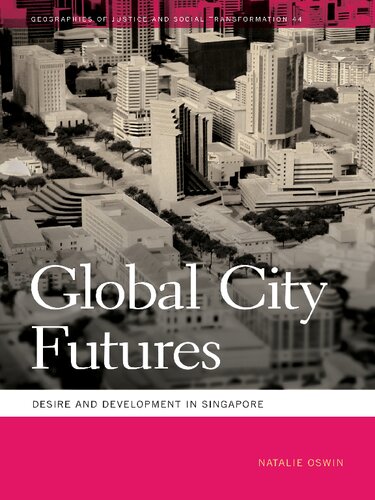

Most ebook files are in PDF format, so you can easily read them using various software such as Foxit Reader or directly on the Google Chrome browser.
Some ebook files are released by publishers in other formats such as .awz, .mobi, .epub, .fb2, etc. You may need to install specific software to read these formats on mobile/PC, such as Calibre.
Please read the tutorial at this link: https://ebookbell.com/faq
We offer FREE conversion to the popular formats you request; however, this may take some time. Therefore, right after payment, please email us, and we will try to provide the service as quickly as possible.
For some exceptional file formats or broken links (if any), please refrain from opening any disputes. Instead, email us first, and we will try to assist within a maximum of 6 hours.
EbookBell Team

4.1
30 reviewsGlobal City Futures offers a queer analysis of urban and national development in Singapore, the Southeast Asian city-state commonly cast as a leading “global city.” Much discourse on Singapore focuses on its extraordinary socioeconomic development and on the fact that many city and national governors around the world see it as a developmental model. But counternarratives complicate this success story, pointing out rising income inequalities, the lack of a social safety net, an unjust migrant labor regime, significant restrictions on civil liberties, and more.
With Global City Futures Natalie Oswin contributes to such critical perspectives by centering recent debates over the place of homosexuality in the city-state. She extends out from these debates to consider the ways in which the race, class, and gender biases that are already well critiqued in the literature on Singapore (and on other cities around the world) are tied in key ways to efforts to make the city-state into not just a heterosexual space that excludes “queer” subjects but a heteronormative one that “queers” many more than LGBT people. Oswin thus argues for the importance of taking the politics of sexuality and intimacy much more seriously within both Singapore studies and the wider field of urban studies.